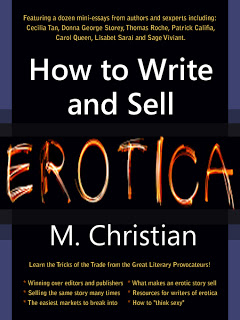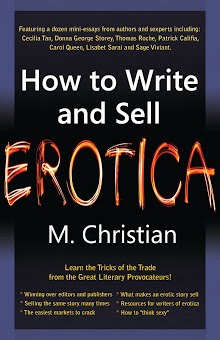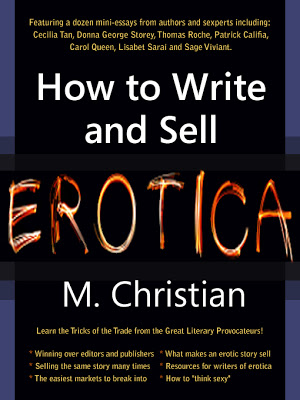Very few genres have their writers picking and choosing—often very carefully—what words they can, should, or must never use. In erotica, word choice basically comes down to two questions: what’s appropriate to the story, and how important is it to work around limitations.
Believe it or not, certain editors and publishers have a verboten word list that includes certain slang terms or spellings. The question of whether to argue with them isn’t an ethical one. Your preference for cum rather than come or your use of pussy when the editor doesn’t favor it isn’t really the question. Your main dilemma is simply this: how much you want to see your work published? Editors will insist you take it out or publishers will often change the word without your permission, so really, how attached are you to these words?
For the record, I believe an anthology should be consistent in its spelling—so while I respect a writer’s preference for come instead of cum I don’t blink, or blink that much, when my publisher suggests a change so the word is the same in every story. In the second instance, if an editor or publisher simply doesn’t like a word … well, I suggest the editor go into therapy, and that the rest of us simply try not to sweat it when they take the word out. And we can always just not work with them in the future.
Now appropriate word choice: that’s another matter. Certain words either aren’t correct or don’t feel correct in the context of a story. The problem could be historical. For example, the word sex as a term for female genitalia is tolerable when you’re doing a historical piece, but when your character is a Gen-X, Y, or Z person, how appropriate is it? It might be technically correct, but sex is often used as a safe way of describing what’s between a woman’s thighs. My own rule is to use terms that feel right for the character. If someone is depicted as repressed, using words like cunt or twat is jarring. Same for an older man using clumsy slang for his own genitals, like member.
I applaud people for doing research, by the way. Nothing adds a flavor of realism more than slipping in a good word choice for sex or the active biology of sex. One of my own favorites is a 19th century term for female genitalia, Old Hat, because it was frequently felt. Yes, you may wince.
One thing I like to see in a story has little to do with the words of sex and more to do with the view of sex. Assuming that characters in a story set in Nero’s Rome view sex the same way we do today can result in some clumsy word usage. Certain types of sex were rare or seen with disfavor—in the case of Rome, noticing or even admiring women’s breasts in a sexual context was a sign of weakness. Just look at the Pompeii mosaics; the prostitutes depicted—no matter what they were doing—kept their boobies wrapped. Therefore, you wouldn’t want to spend too much time waxing poetic on some Roman woman’s tits if your story was set in that time period.
The bottom line is that certain words and ideas work and others don’t. The trick to picking the right ones has little to do with the power of them at this moment or your own personal preference as it does with their relevance within the story. Naughty words shouldn’t be ones that reach the modern libido but instead be used to continue to keep the reader within and enjoying the story. Because when you get down to it, an erotic story isn’t about the words but rather what you are saying with them.









